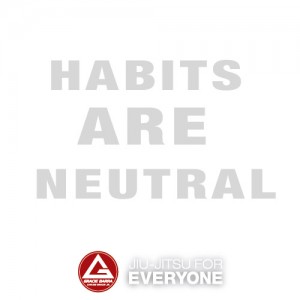Self-Audit and the Powerful Habit
Before you read further into this article. I want you to do a self-audit. Let’s try to be conscious. Now, I want you to look at yourself from a third person’s perspective. Like from a CCTV camera’s view. Notice how you move about while working. Your movements, mannerisms, and reactions are all brought about by habits. Habits are derived from behaviors. Behaviors are derivatives of tiny actions that become repetitive. Sounds easy enough?
How often do you do a self-audit? Or are you under your own comfort of just letting tiny actions “just happen.” How frequently do you “think things through” before blurting out a comment? How do you respond to a question when someone asks you one? Is it automatic? Are responses you give out automatic, unaudited, natural? Or are these comments well-thought out? Whatever the answer is, it’s all related to habits.
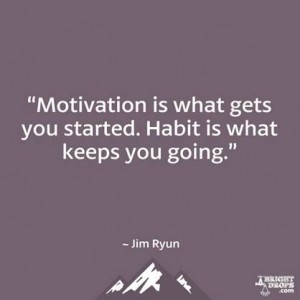 Being in martial arts requires a high degree of control. Martial arts teaches an individual a strong habit! Let’s call this self-control. So what’s the value in becoming someone who is fully aware of his actions? A lot. Consider auditing to be a way to upgrade oneself. When we audit, we do away with habits that aren’t making us grow.
Being in martial arts requires a high degree of control. Martial arts teaches an individual a strong habit! Let’s call this self-control. So what’s the value in becoming someone who is fully aware of his actions? A lot. Consider auditing to be a way to upgrade oneself. When we audit, we do away with habits that aren’t making us grow.
There is a link between auditing your actions and your habits. And it’s quite simple: know which to keep, and which ones to do away with. If you feel that you have developed habits that aren’t helping you grow, or you are (without a doubt stuck with) unproductive, self-limiting habits. But before we delve further, let us first look at what habits are.
Things to know about habits
Habits are neutral
Habits are neither good or bad. We cannot put a stamp on a mere thought pattern. However, it is what we do with our habits that causes negativity. Being tardy for work is a habit. Missing BJJ training and drills day is a habit. Being motivated to practice BJJ is a byproduct of a habit. Again, these are neither good or bad.
Your habits didn’t exist all by themselves. Nobody has a natural predisposition towards a specific habit. You develop those. It can be as trivial as your choice in food, or as profound as self-belief! Our thought patterns are created by powerful habits. Typically, these are stimuli that are brought to us by our environment. Studies in the field of psychology show a strong correlation between the development of habits and the environment a person thrives in. On a side note: be aware of your environment, they affect habits as well.
Habits can be undone
There is good news. The habits that you present (those that you are exhibiting in your life, particularly with the ones you aren’t happy with) can be undone. They can be erased. The awesome thing about it is it’s simple. You just need to employ some strategies!
Habits Require Practice
If you have a habit that you are least fond of, sad to say, you are the one who cultivated that habit. IF you have a habit of skipping training class, or being late for work, or submitting reports late. Again, it’s not just in BJJ where habits are formed or practiced! You are then molded into a person with that habit. All of our habits are results of behaviors. If you have a habit of listening to your instructor, then it’s a practice of developing habits!
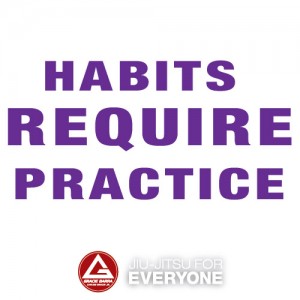 The Link Between Self-Audit and Habits
The Link Between Self-Audit and Habits
The change of habits first requires profound realization and awareness of those that you need to change. Let’s say that you have a habit of reacting negatively towards undesirable people and circumstances. You need to be aware of it first. If you have a habit of not attending BJJ Class, then you need to made aware of it as well. If you are blind to your own areas of growth, then there is no way for you to accentuate the need and drive your own improvement. Remember the practice having an outside person looking in, or the 3rd person perspective? Once you are able to separate yourself and become objective toward your own actions, you are one step closer to successfully auditing an action’s deep-rooted by habits!
Change through Removal
Developing powerful and life-changing habits is not easy. But the very first step in developing these is called the self-audit. You have to do a self-assessment on which habits to keep vs. the ones that you are doing away with. Are you eating unhealthy, low-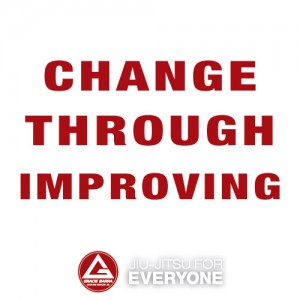 nutritional value food? Try to do an audit on those and see what you can change! Removal is one of the hardest ways to change a habit. You are virtually removing one behavior altogether. Let’s use cigarette smoking. A smoker will have a hard time removing smoking as his habit because he is taking away an entire habit altogether.
nutritional value food? Try to do an audit on those and see what you can change! Removal is one of the hardest ways to change a habit. You are virtually removing one behavior altogether. Let’s use cigarette smoking. A smoker will have a hard time removing smoking as his habit because he is taking away an entire habit altogether.
Change Through Swapping
Swap habits with new ones. Let’s say you are fond of just lying lazily in the coach, or smoking, or procrastinating. While you have developed these habits and they have been cemented in your system for a long time, swapping these unhealthy and unproductive habits with the opposite is more useful.
Change Through Improving
It’s time to bank on those desired habits. Waking up early, diligence in training, or working out are habits worth keeping and improving on! Change by adding more value to those! You’d be glad you did!
Get Feedback
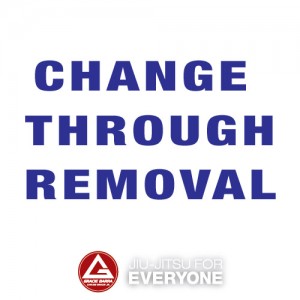 For you to be aware, you need feedback. And the best way to get feedback is from people that you trust the most and who are concerned about your welfare. If you need to improve on your game, develop good habits. The rest is easy. Remember: success is not an end point, but a habit!
For you to be aware, you need feedback. And the best way to get feedback is from people that you trust the most and who are concerned about your welfare. If you need to improve on your game, develop good habits. The rest is easy. Remember: success is not an end point, but a habit!
Awareness and self-audit is the key in becoming aware of habits. Try to look at yourself from another person’s perspective. Are you happy about your habits?
Credits: Nilo Valle Chinilla


